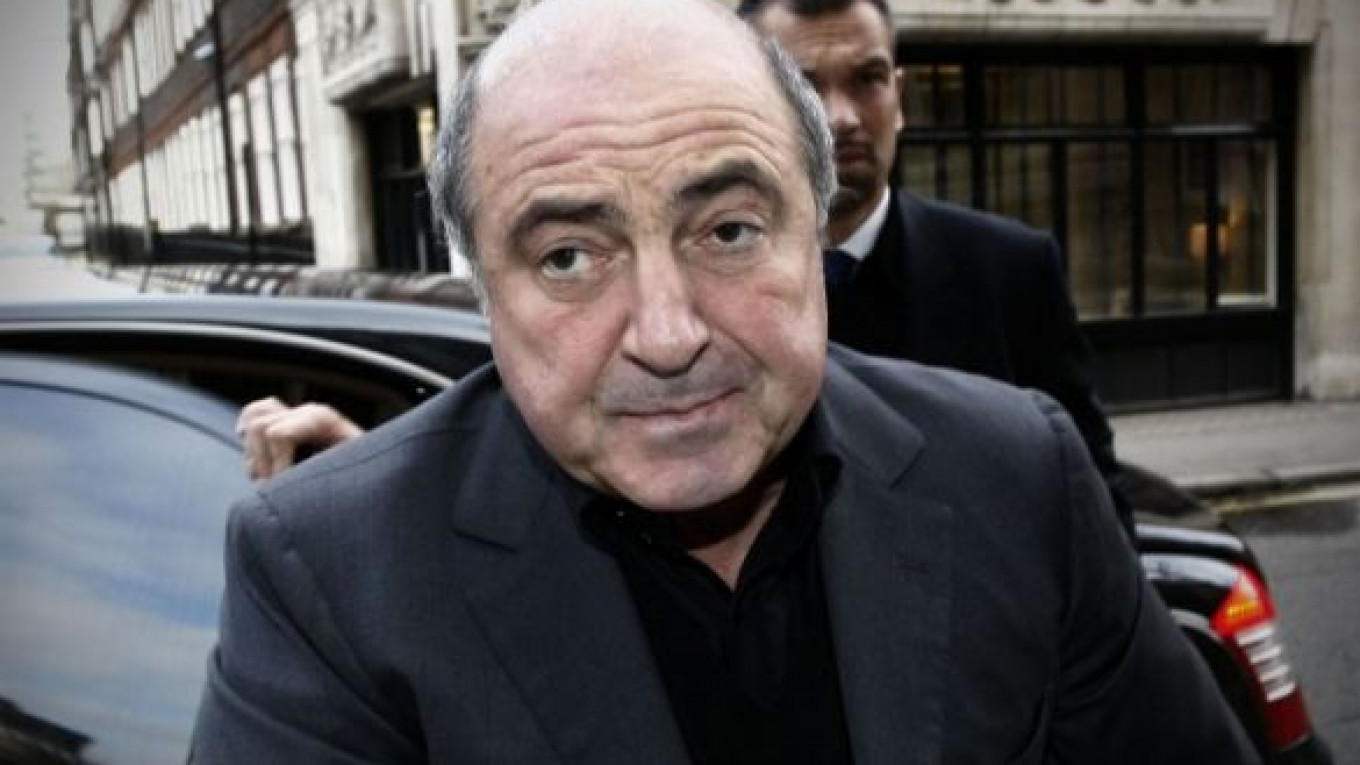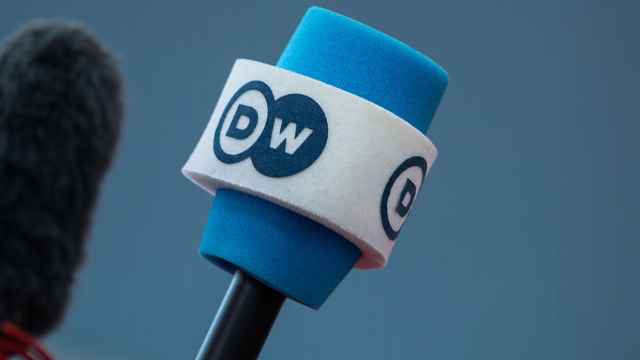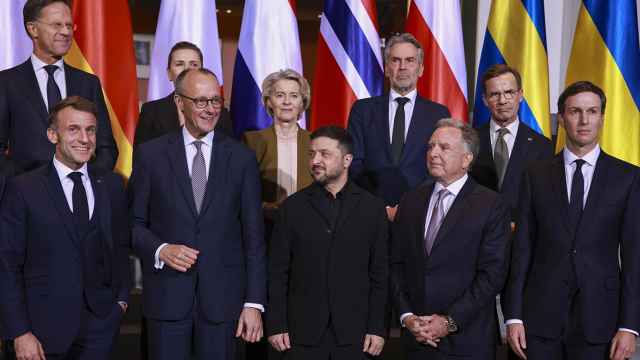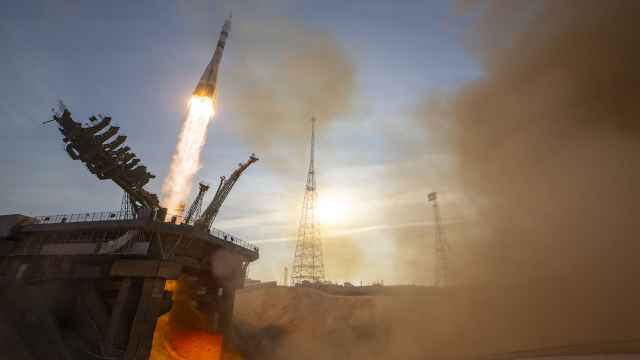Boris Berezovsky would probably heap all of his ill fortunes at the feet of Vladimir Putin, the man whom he helped make Russia's president but then spent the rest of his life trying to topple.
Still, the relationship between Putin and Berezovsky, who was found dead under unclear circumstances in his home outside London on Saturday, was far more complicated, said analysts and people who knew Berezovsky.
Underscoring the complexity, Putin's spokesman Dmitry Peskov disclosed that Berezovsky had written to the president two months ago, asking him for forgiveness and a pardon.
Only a year ago, on the eve of Putin's re-election, Berezovsky wrote an open letter to the Russian people, asking for their forgiveness for helping the "greedy tyrant" gain power.
"I think that the real state of their relationship wasn't so bad," said Stanislav Belkovsky, a long-time friend of Berezovsky and a former Kremlin insider. In private conversations, he said, "Berezovsky spoke about Putin with a certain degree of respect."
But the problem might have been that Berezovsky never openly extended that respect to Putin himself, or received Putin's respect in return, said Sergei Markov, a former State Duma deputy with United Russia.
Berezovsky, according to his own testimony in a London court in November 2011, first met Putin in 1991 in St. Petersburg, where Putin worked in City Hall. The two became friends and often spent their vacations together until Putin was elected president in 2000, Forbes reported 2011.
By the mid-1990s, Berezovsky had emerged as a Kremlin powerbroker through his membership in "The Family," as then-President Boris Yeltsin's inner circle was known. A billionaire with assets ranging from the media to oil and Aeroflot, Berezovsky's political career included a stint as deputy head of the Security Council in 1996-97 and as a Duma deputy.
Marina Yudenich, who worked in the presidential administration in the 1990s, recalled that Berezovsky sometimes used unorthodox tactics to stay for hours in the offices of powerful Kremlin officials.
"He would ask for tea and a sandwich to prolong his visits. How can you get rid of someone who is drinking tea in your office?" she said in a documentary smearing Berezovsky shown on Rossia 1 television in December.
He won access to Yeltsin by befriending his chief of staff Valentin Yumashev and younger daughter Tatyana Dyachenko, even though his relations remained cool with Yeltsin's personal bodyguard Alexander Korzhakov, another powerful player in The Family.
Korzhakov, who also served as Yeltsin's close aide, has said many times that Berezovsky had at one point urged him to kill Vladimir Gusinsky, another powerful oligarch who controlled a rival television station, NTV.
Using his ORT television, now Channel One, Berezovsky helped to boost the popularity of the little-known Putin after Yeltsin named him as his preferred successor in 1999.
Star journalists from the Berezovsky-controlled Kommersant publishing house were commissioned to write a book of interviews with Putin called "First Person."
Berezovsky also participated in the creation of Unity, a predecessor to United Russia that propelled Putin-friendly lawmakers into the Duma in 1999 and Putin into the Kremlin the following year.
The first visible tensions surfaced in late May 2000, just three weeks after Putin's inauguration. Berezovsky, then a Duma deputy, published an open letter in Kommersant denouncing a constitutional reform proposed by Putin that would allow the president to dismiss elected governors.
Putin's irritation with Berezovsky apparently boiled over after the Kursk nuclear submarine sank during missile tests in the Barents Sea, killing all 118 sailors onboard. Putin faced a torrent of anger over the rescue operation during a meeting with the widows of Kursk sailors, and Berezovsky's ORT aired the encounter.
In October, Putin suggested darkly that Berezovsky and other oligarchs were using the media to blackmail him. Referring specifically to Berezovsky, he told the French newspaper Le Figaro: "The state has a cudgel in its hands that you use to hit just once, but on the head. We haven't used this cudgel yet. We've just brandished it. … [But] the day we get really angry, we won't hesitate to use it."
Around the same time, investigators reopened a fraud investigation into Aeroflot.
Within days, Berezovsky fled into self-exile in London, saying Putin was using the Aeroflot case to get back at him for the Kursk coverage.
No matter what the relationship might have been between Putin and Berezovsky in the 1990s, it took a decidedly cold turn once Putin became president, observers said.
Berezovsky didn't respect Putin, seeing him as a person whom he could manipulate, while Putin treated Berezovsky "coolly," said Markov, the former Duma deputy who now serves as a member of the Public Chamber.
He said Putin started distancing himself from The Family, choosing instead to align himself with confidants like Sergei Ivanov, now his chief of staff, and Igor Sechin, currently the head of Rosneft, the state oil giant built on the ruins of an empire run by another oligarch who ran afoul of Putin, Mikhail Khodorkovsky.
With his own siloviki insiders, Putin "started reinstating state sovereignty," Markov said.
But after 12 years, Berezovsky, apparently bankrupt and broken, might have been willing to do the previously unthinkable: betray those whom he had schemed with to unseat Putin, he said.
"To be forgiven, Berezovsky would have to give up all of Putin's enemies," Markov said, referring to the letter mentioned by Peskov.
"It is obvious that he wanted to return to his motherland," he said.
Peskov, Putin's spokesman, said Berezovsky was not Putin's "political opponent" and his criticism was the rhetoric of a "powerless enemy," Interfax reported.
In public, Berezovsky often showed anger toward Putin, once appearing before reporters wearing a Putin mask and carrying a poster reading, "I gave you life, so I will also be the one who calms you down." The phrase was a reference to author Nikolai Gogol's "Taras Bulba," in which a father tells a son who betrayed his country, "I gave you life, I will also kill you!"
Putin, in turn, accused the Russian opposition of having ties to Berezovsky and claiming that leaders Boris Nemtsov and Vladimir Ryzhkov "stole billions" together with Berezovsky in the 1990s.
Interestingly, Nemtsov remained at odds with Berezovsky when he served as a deputy prime minister in Yeltsin's government in the 1990s. Ryzhkov, who worked alongside Berezovsky in the Duma, said he had served as an ordinary deputy while Berezovsky was a heavyweight.
Berezovsky implicated Putin in the killing of Novaya Gazeta journalist Anna Politkovskya, who was shot dead in Moscow on Putin's birthday in 2006. He also accused Putin of playing a role in the poisoning death of former FSB officer Alexander Litvinenko, who died in London in 2006. Like Berezovsky, Litvinenko had received political asylum in Britain.
Berezovsky also contributed to tense relations between Putin and Belarussian President Alexander Lukashenko. Berezovsky visited Belarus several times, and Lukashenko told Russia's RT television earlier this month that Berezovsky had recommended that he hire the Bell Pottinger Group, an international public relations firm, to improve Belarus' image in the West.
Opposition activist Natalya Pelevina, who met Berezovsky in July, said that Berezovsky had spoken angrily about Putin.
"He said that his dream was to put Putin before a tribunal and that Litvinenko would be the first case in the dock," she said.
Berezovsky, she said, also voiced support for the U.S. Magnitsky Act, which blacklists Russian officials accused of human rights violations.
She said she doubted that Berezovsky had asked for Putin's forgiveness. "If this letter existed, it would have been released earlier," she said.
But Vladimir Zhirinovsky, a Duma deputy speaker whose Liberal Democratic Party has followed the Kremlin line since Yeltsin's days, said he had met Berezovsky while vacationing on the Red Sea in January and found him eager to return to Russia.
Speaking on Ekho Moskvy radio, he said that when he had offered his assistance in facilitating the return, Berezovsky had "responded very eagerly."
He said Berezovsky had also promised to help "close the Litvinenko case."
Contact the authors at [email protected] and [email protected]
Related articles:
A Message from The Moscow Times:
Dear readers,
We are facing unprecedented challenges. Russia's Prosecutor General's Office has designated The Moscow Times as an "undesirable" organization, criminalizing our work and putting our staff at risk of prosecution. This follows our earlier unjust labeling as a "foreign agent."
These actions are direct attempts to silence independent journalism in Russia. The authorities claim our work "discredits the decisions of the Russian leadership." We see things differently: we strive to provide accurate, unbiased reporting on Russia.
We, the journalists of The Moscow Times, refuse to be silenced. But to continue our work, we need your help.
Your support, no matter how small, makes a world of difference. If you can, please support us monthly starting from just $2. It's quick to set up, and every contribution makes a significant impact.
By supporting The Moscow Times, you're defending open, independent journalism in the face of repression. Thank you for standing with us.
Remind me later.






